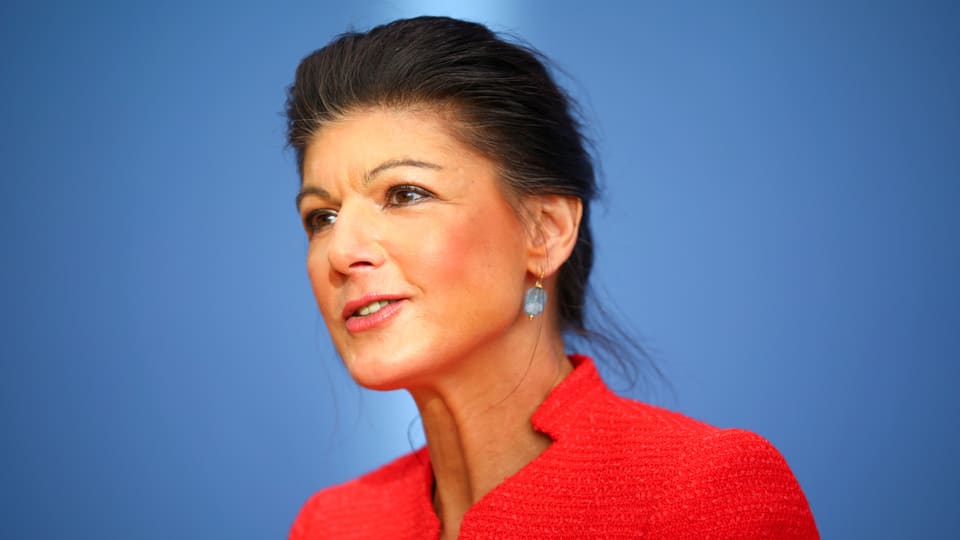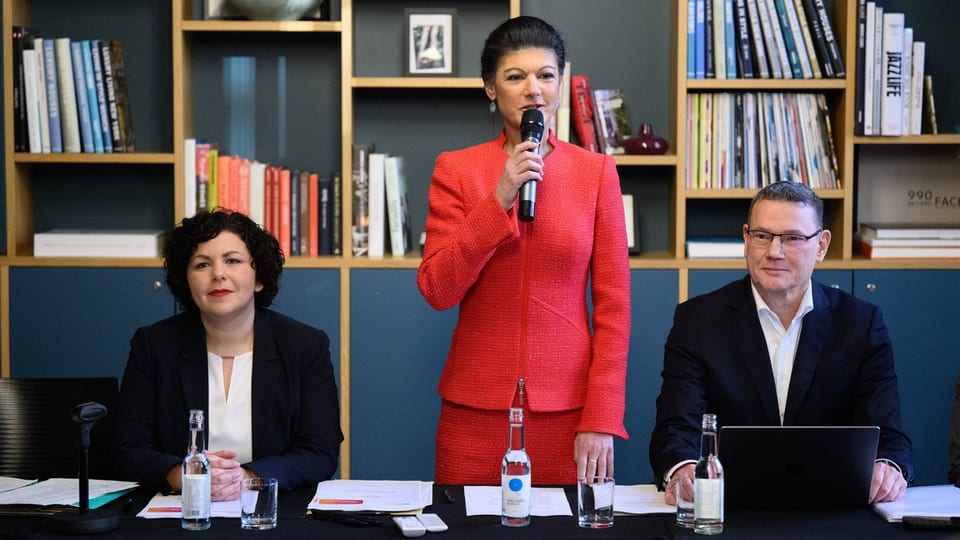After her break with the German left, Sahra Wagenknecht founded a new party: the “Alliance Sahra Wagenknecht – Reason and Justice” (BSW), named after her, will take part in the European elections for the first time in early summer, said the 54-year-old Bundestag member in Berlin. The party is scheduled to run in the three state elections in East Germany in the fall. Simone Fatzer, SRF’s Germany correspondent, explains how the Wagenknecht party is positioning itself – and whether it has the potential to firmly establish itself in the German party landscape.
What accents does the party set?
The founding manifesto of the new party was already available in advance. It is formulated in very general terms – and who is against “reason”? But the thrust is clear: medium-sized businesses should be strengthened in the economy. Above all, they want to limit and unbundle the market power of large corporations. Social justice is a core concern of the party, distribution from top to bottom, and a strong welfare state. In foreign policy, the emphasis is on “peace” – what is meant here is peace with Russia and a stop to arms deliveries to Ukraine.

Legend:
Wagenknecht and her party also speak out against Germany’s strong ties to NATO. When it came to asylum policy, Wagenknecht always had a tough stance against immigration.
REUTERS/Nadja Wohlleben
Finally, the party is clearly targeting the Greens: Wagenknecht has long been criticizing the left-liberal urban society, the “cancel culture” and the pressure to conform. She strictly rejects regulating lifestyle and language. That’s a lot of symbolic politics – but it can be used to create a good mood.
Where does the alliance position itself in the party spectrum?
It’s difficult to pinpoint. The alliance represents left-wing conservatism: classically left-wing when it comes to economic issues and social justice. The party positions itself as a right-wing nationalist in social issues, asylum policy and culture. The criticism of “green-woken” city dwellers is also familiar from the AfD. In some respects, the alliance could even appeal to the CDU’s core electorate. Old Marxists and right-wing nationalists could meet in the party in the future. That shows the balancing act she is trying to do.
Can the party pick up the protest voters?
Many Germans have been dissatisfied with the traffic light government for a long time, including farmers whose subsidies are to be cut. So far, the AfD in particular has benefited from the protest mood. Wagenknecht explicitly says that she wants to offer these dissatisfied people a political home. This is particularly explosive given the three elections in East Germany in the fall. The AfD, which is partly right-wing extremist, should be able to achieve great successes there.

Legend:
At a two-hour media conference in Berlin, Wagenknecht (center) repeated her sharp criticism of the government coalition made up of the SPD, Greens and FDP: “You are experiencing a government that has no plan.” The coalition is taking money out of people’s pockets and dividing the country.
Keystone/DPA/BERND VON JUTRCZENKA
It will be interesting to see what tone BSW takes in the fall. So far, Wagenknecht has relied on very populist tones, which attracts attention and is a signal to protest voters. The question will be whether people would rather vote for the original, i.e. the AfD. On the other hand, party ties are traditionally less strong in the East than in the West. In principle, the potential of the new party is considered to be great. But to say that you can imagine voting for her is one thing. Doing it is another thing.
